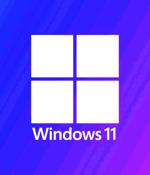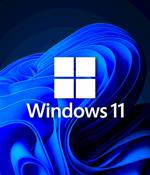Security News

Cybersecurity researchers have warned about a Windows version of a wiper malware that was previously observed targeting Linux systems in cyber attacks aimed at Israel. Dubbed BiBi-Windows Wiper by BlackBerry, the wiper is the Windows counterpart of BiBi-Linux Wiper, which has been put to use by a pro-Hamas hacktivist group in the wake of the Israel-Hamas war last month.

Microsoft is gearing up to roll out an update for Windows 11 that will significantly enhance user control over built-in apps. In the upcoming version, you will be able to uninstall a wider range of inbox apps.

Microsoft provides three more years of Windows Server 2012 Extended Security Updates (ESUs) until October 2026, allowing administrators more time to upgrade or migrate to Azure. [...]

Microsoft publicly acknowledged a known issue causing Windows Server 2022 virtual machine blue screens and boot failures on VMware ESXi hosts. "Affected VMs will receive an error with a blue screen and Stop code : PNP DETECTED FATAL ERROR," Microsoft said in an update to the Windows release health dashboard.

A threat actor has been abusing Google Ads to distribute a trojanized version of the CPU-Z tool to deliver the Redline info-stealing malware. [...]

A new malvertising campaign has been found to employ fake sites that masquerade as legitimate Windows news portal to propagate a malicious installer for a popular system profiling tool called CPU-Z. "This incident is a part of a larger malvertising campaign that targets other utilities like Notepad++, Citrix, and VNC Viewer as seen in its infrastructure and cloaking templates used to avoid detection," Malwarebytes' Jérôme Segura said. While malvertising campaigns are known to set up replica sites advertising widely-used software, the latest activity marks a deviation in that the website mimics WindowsReport[.

Windows 11 will no longer add SMB1 Windows Defender Firewall rules when creating new SMB shares starting with today's Canary Channel Insider Preview Build 25992 build. Before this change and since Windows XP SP2, creating SMB shares set up firewall rules automatically within the "File and Printer Sharing" group for the specified firewall profiles.

As many as 34 unique vulnerable Windows Driver Model (WDM) and Windows Driver Frameworks (WDF) drivers could be exploited by non-privileged threat actors to gain full control of the devices and...
Microsoft says a new known issue is causing desktop icons to behave erratically on systems with multiple displays when using the Windows Copilot AI-powered digital assistant. "Windows devices using more than one monitor might experience issues with desktop icons moving unexpectedly between monitors or other icon alignment issues when attempting to use Copilot in Windows," Microsoft explains.

Windows 11 23H2 is now out and it comes with tons of new features. Despite promising features like easily switching to dark mode, the AI integration feels more like a web wrapper than a native feature of Windows 11.